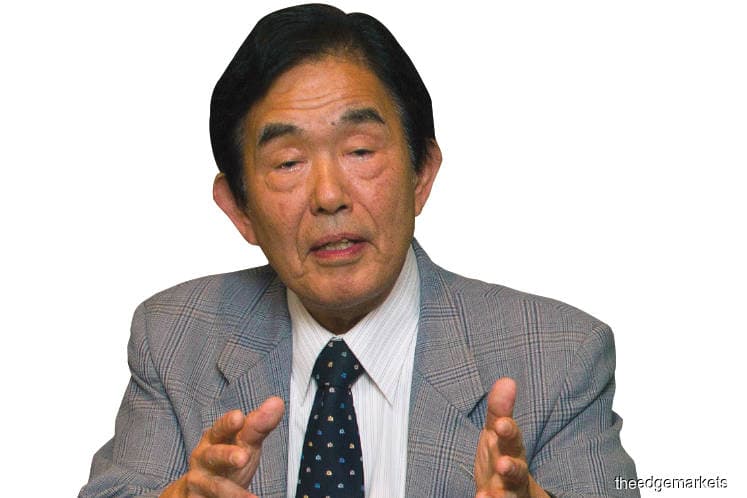
This article first appeared in The Edge Financial Daily on October 11, 2017
KUALA LUMPUR: Keeping retirees, including educated professionals, in the workforce could boost the country’s gross domestic product (GDP) by as much as 5% or more in the long run, according to Universiti Malaya’s Social Security Research Centre’s (SSRC) Old Age Financial Protection chairholder Professor Naohiro Ogawa (pic).
Speaking to reporters on the sidelines of SSRC’s third international conference on social protection themed “Migration, Development and Social Welfare: Implications and New Insights”, Ogawa said that based on calculations, the inclusion of elderly persons in the workforce would boost Japan’s real GDP by approximately 5%.
A similar computation was done in Malaysia using the 2011 National Health and Morbidity Survey, and the minimum wage which showed that in Malaysia, if those in their 60s and 70s work like those in their 50s, the minimum impact on real GDP would be 1%.
He acknowledged that the immediate impact is not significant. However, in the long run, Malaysia has the potential to see real GDP boosted over 5% based on the computation with assumptions of higher wages.
“In other words, the country can depend on the elderly,” he said.
Dubbing the third demographic dividend as the “silver dividend”, Ogawa, who is a project professor for the graduate school of economics of the University of Tokyo, said with continuous health improvement, the potential of rehiring those in their 60s and 70s is high.
According to the Department of Statistics Malaysia (DOSM), about two million people, aged 65 and above, were recorded as elderly, making up 6.2% of the population as of Aug 15, 2017.
DOSM said Malaysia is expected to hit ageing population status by 2020, with the percentage of the old-age population exceeding 7%. The government has raised the retirement age to 60 from 55 following the implementation in 2013 of the Minimum Retirement Age Act 2012.
Meanwhile, Ogawa said Malaysia has been enjoying the first demographic dividend currently because of the country’s young working population age between 15 and 64.
“The first demographic dividend arises because of an increase in the share of the population at ages during which production exceeds consumption. Malaysia has been enjoying the first demographic dividend for about 20 years, but it is expected to end in 2029, and not 2020 as mentioned by the Malaysia Plan.
“However, the first demographic dividend is only temporary; the country should take advantage of this golden opportunity to implement a strong economic policy to keep pace with the ‘bulging’ productive population,” he said. Thus, the second demographic dividend involves a forward-looking generation that is involved in public or private savings as social protection as life expectancy improves.
He noted that capital accumulation has implications that can be used to raise productivity, such as the EPF scheme, but Malaysians should save more of their own accord. His study on Malaysia showed that the capital stock or wealth accumulation can last beyond 2060.
“Not many people are aware of this, but the magnitude of the impact on Malaysian economic growth of the second demographic dividend is twice as big than the first demographic dividend. It is happening now,” he said.
He said the government should inculcate financial literacy and encourage people to save more to help the economy.
Ogawa is leading a study at SSRC on policy recommendations taking advantage of the silver dividend that would be presented to the federal government soon.
Asked if the silver dividend would create a further setback in the unemployment rate, he said statistically, there would be no impact because the elder group has a different skill set and background.
“Job opportunities for the elderly are not substitution of the younger group. The study in Japan echoes the empirical data found in Europe, which show no impact on job deprivation among unemployed youths,” he added.